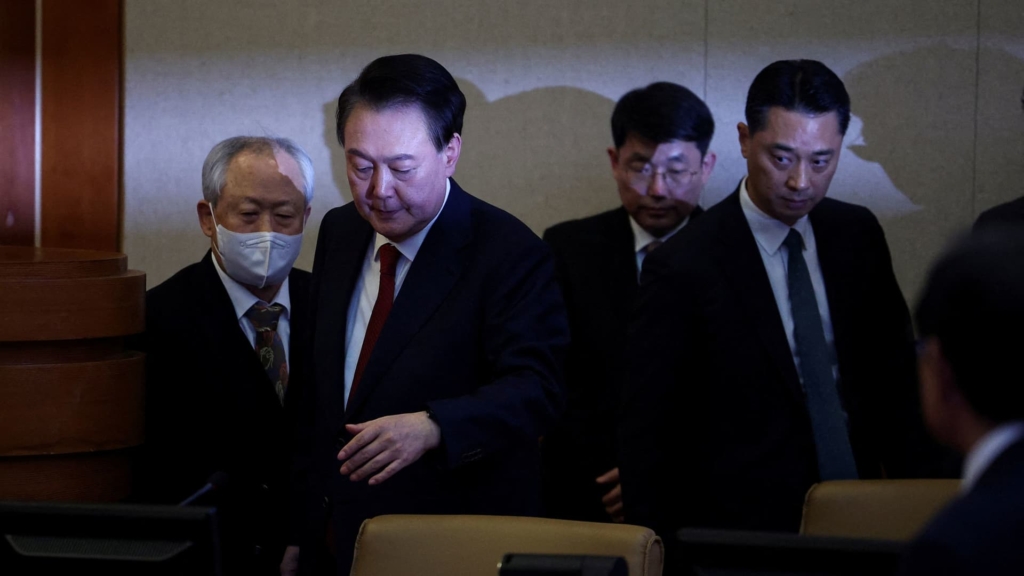In a significant ruling, South Korea’s Constitutional Court upheld the impeachment of Yoon Suk Yeol on Friday, resulting in his removal from the presidency.
The court’s decision triggers a 60-day period during which a presidential election is mandated to select Yoon’s successor. During this interval, Prime Minister Han Duck-soo will serve as acting president, following the court’s earlier ruling on March 24.
Acting Chief Justice Moon Hyung-bae announced the unanimous decision during a televised broadcast, clarifying that Yoon’s declaration of martial law did not satisfy the necessary legal criteria for a national emergency.
Moon also pointed out a breach of the law by Yoon, who had deployed troops to the National Assembly in an attempt to prevent the reversal of martial law, as reported by local media outlet Yonhap.
The ruling had immediate repercussions on financial markets, with the Kospi index declining by 1.66% and the smaller Kosdaq slipping by 0.85%. Meanwhile, the South Korean won saw a modest strengthening of approximately 1% against the U.S. dollar.
South Korea’s Democratic Party hailed the ruling as a “people’s victory,” whereas Yoon’s People Power Party acknowledged the court’s decision with a statement of acceptance.
In response to the court’s ruling, South Korea’s finance minister organized an emergency meeting with the Bank of Korea’s governor Rhee Chang-yong, along with the leaders of the country’s financial supervisory services. The meeting was aimed at assessing the potential impacts on the nation’s financial and real economy following the Constitutional Court’s decision, according to a report from Chosun Biz.
Yoon was impeached over his controversial declaration of martial law on December 3, which he justified as a necessary measure to safeguard the country against perceived threats from “North Korean communist forces” and “anti-state forces.” This marked the first imposition of martial law in South Korea in over four decades.
After the martial law declaration, lawmakers swiftly moved to reject the decree in the National Assembly, leading to the filing of impeachment motions against Yoon shortly thereafter. His impeachment occurred on December 14, resulting in his suspension from presidential duties.
Following the court’s ruling, Homin Lee, a senior macro strategist at Lombard Odier, spoke with Finance Newso, suggesting that the verdict could provide clearer governance in South Korea over the coming years and might mitigate some investor concerns stemming from geopolitical tensions linked to U.S. policies.
While the outlook for the upcoming presidential by-election remains uncertain, Lee indicated that investors might perceive opposition party leader Lee Jae-myung as a likely frontrunner and will carefully monitor his policy directions. Nonetheless, he anticipates short-term volatility in South Korean markets, stating that “investors will continue to grapple with the shock from Trump’s reciprocal tariffs.”
Lee maintained a “neutral” stance regarding South Korea, acknowledging that the uncertainties related to trade balance out the positive aspects of a return to normal political conditions and reasonable asset valuations.


























